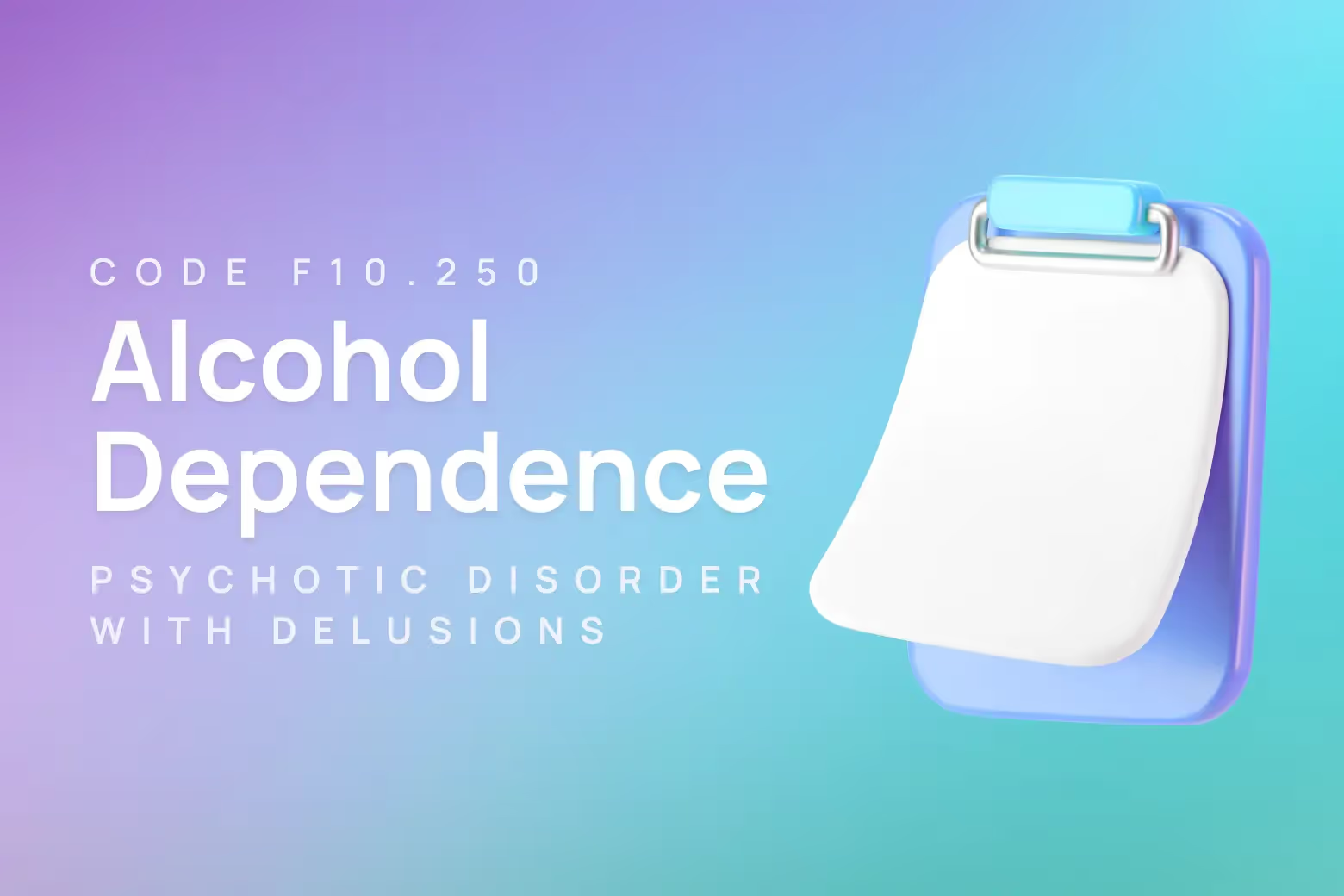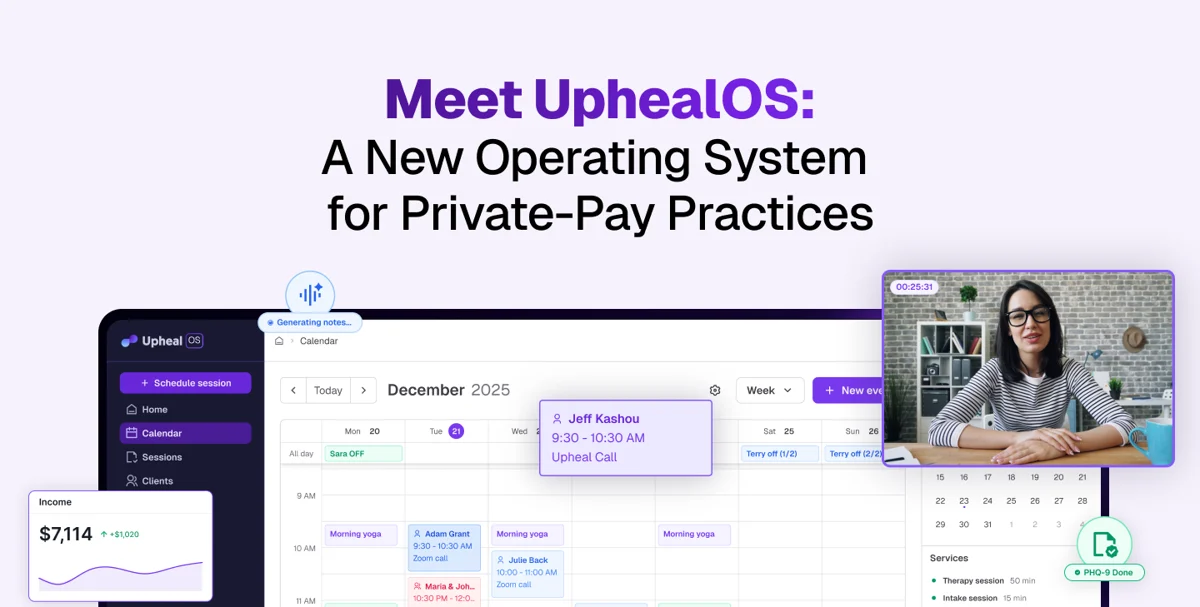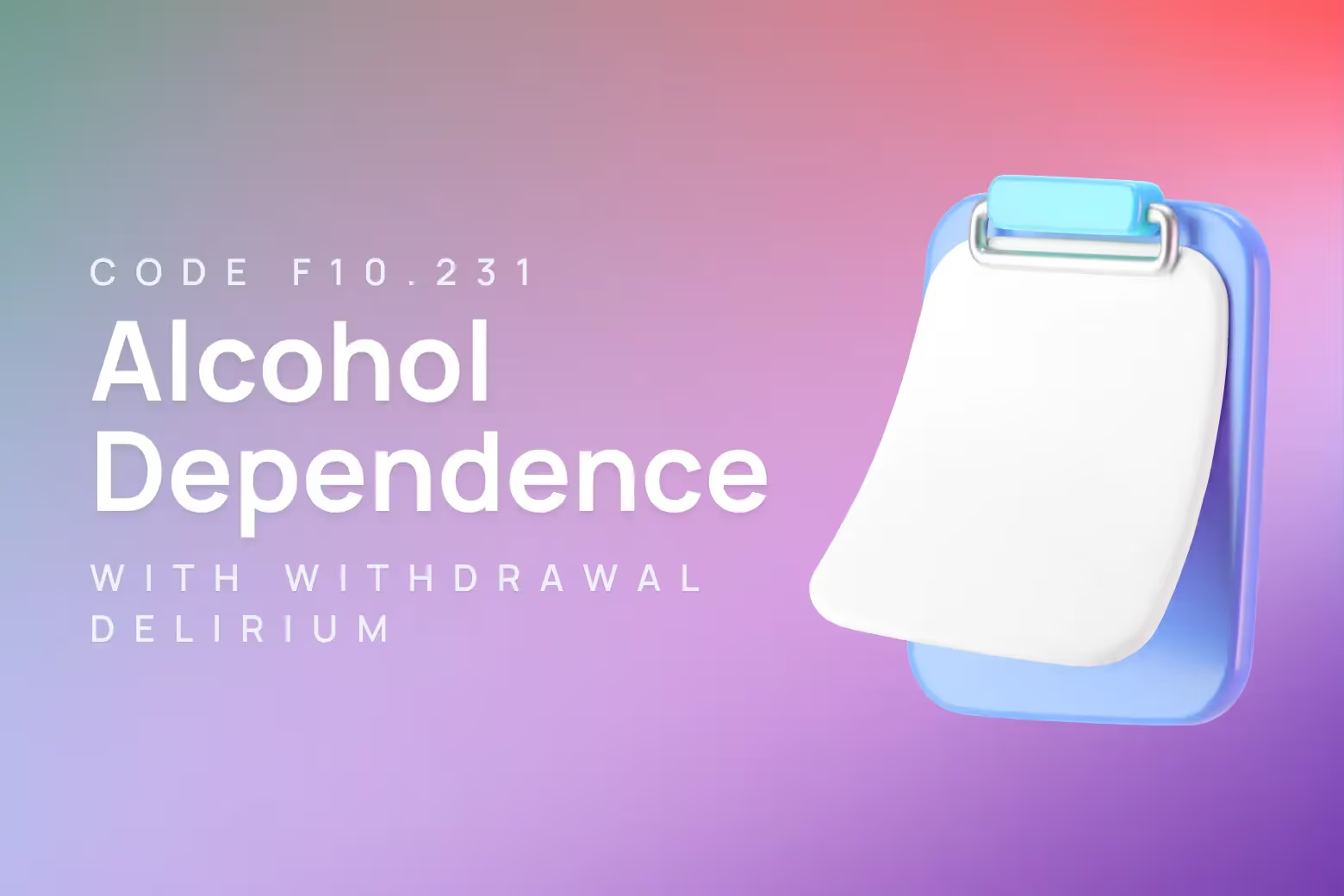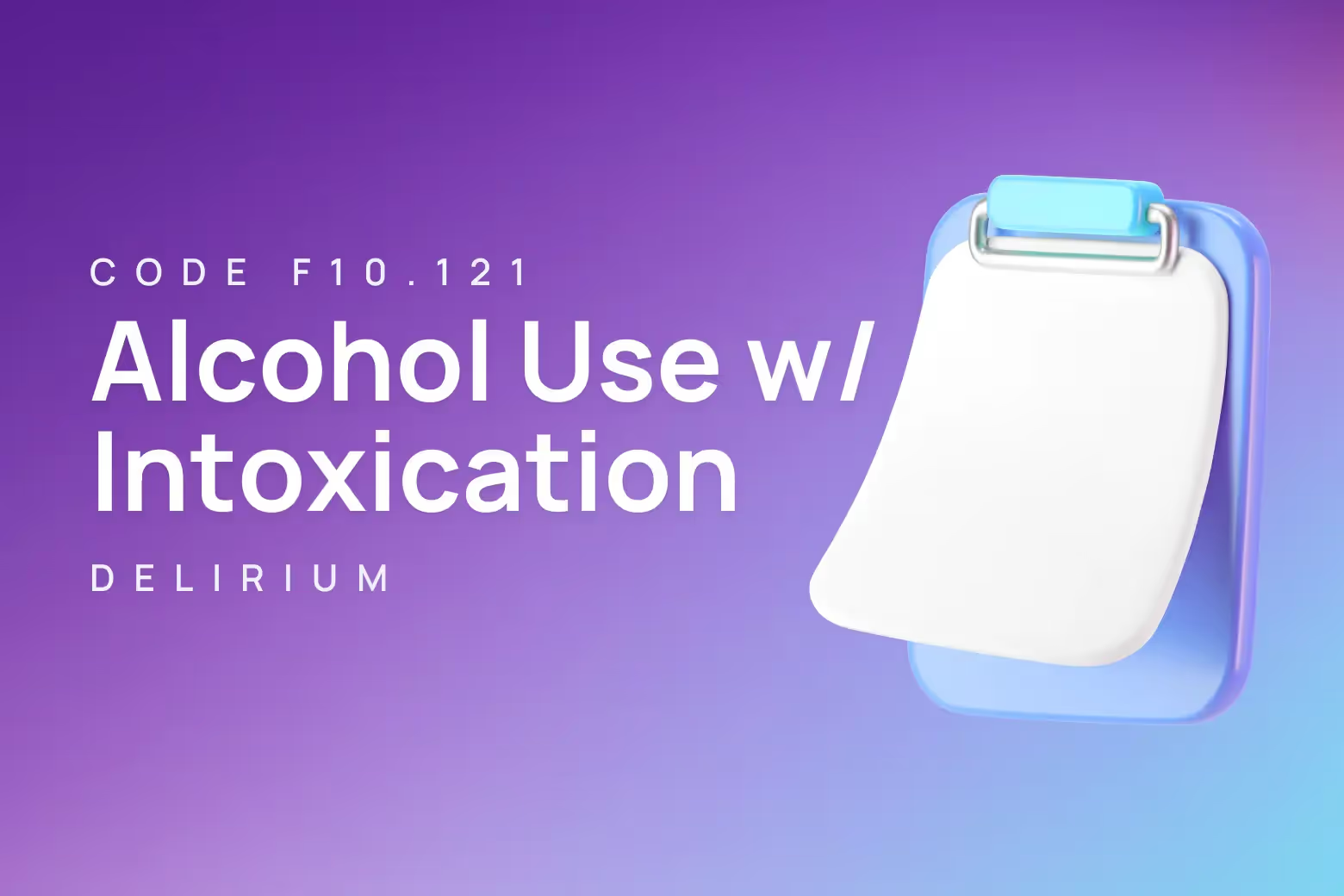ICD-10 code for alcohol dependence with alcohol-induced psychotic disorder, with delusions

F10.250 is the ICD-10 code for alcohol dependence with alcohol-induced psychotic disorder, with delusions.
This specific diagnosis identifies clients who meet criteria for severe alcohol use disorder while experiencing delusions directly caused by their alcohol consumption.
Proper identification and documentation helps ensure appropriate treatment approaches that address both the underlying substance dependence and the associated psychotic symptoms.
Key features:
- Applies when severe alcohol dependence coexists with alcohol-induced delusions
- Requires evidence that psychotic symptoms developed during periods of alcohol use or withdrawal
- Distinguished from primary psychotic disorders by clear temporal relationship to alcohol consumption
- Treatment typically involves both addiction management and antipsychotic intervention

Diagnostic criteria for alcohol dependence with alcohol-induced psychotic disorder (F10.250)
Clinicians must establish two primary diagnostic components to assign F10.250.
First, the client must meet criteria for alcohol use disorder with moderate to severe features, defined by at least four symptoms from the established criteria occurring within a 12-month period. These symptoms include:
- drinking larger amounts than intended
- persistent unsuccessful efforts to reduce consumption
- spending excessive time obtaining or recovering from alcohol use
- experiencing strong cravings
- failing to meet major obligations
- continuing use despite social problems
- giving up important activities
- using alcohol in hazardous situations
- persisting despite physical or psychological problems
- developing tolerance or withdrawal symptoms
The psychotic component involves delusions that developed during alcohol intoxication or withdrawal periods.
These false beliefs must represent a clear departure from reality and typically involve persecutory themes, though other delusional content may occur.
Unlike alcohol-related hallucinosis, which primarily features auditory or visual hallucinations, F10.250 specifically indicates the presence of delusions as the predominant psychotic feature.
The temporal relationship between alcohol use and psychotic symptoms is crucial for accurate diagnosis.
The delusions must emerge during periods of alcohol consumption or withdrawal rather than occurring independently.
This distinguishes alcohol-induced psychosis from primary psychotic disorders that may co-occur with substance use but develop independently of drinking patterns.
When to use F10.250 diagnosis code
F10.250 should be assigned when clients present with both severe alcohol dependence and delusions that are directly attributable to their alcohol use. Clinicians must carefully evaluate the timing and context of psychotic symptoms to ensure proper diagnostic coding.
F10.250 vs F10.25 (Alcohol dependence with alcohol-induced psychotic disorder)
The parent code F10.25 represents the broader category of alcohol-induced psychotic disorders without specifying the type of psychotic symptoms.
Use F10.250 when delusions are the primary or most prominent psychotic feature. The more specific code provides better clinical clarity and supports targeted treatment planning approaches.
F10.250 vs F10.251 (Alcohol dependence with alcohol-induced psychotic disorder, with hallucinations)
F10.251 specifically identifies cases where hallucinations predominate over delusional symptoms.
Choose F10.250 when false beliefs and paranoid ideation represent the main psychotic presentation, even if some hallucinatory experiences may also be present.
The distinction helps guide appropriate pharmacological interventions and safety considerations.
F10.250 vs F20.9 (Schizophrenia, unspecified)
Primary schizophrenia spectrum disorders follow a different developmental pattern and typically begin independently of substance use.
F10.250 requires clear evidence that delusions emerged specifically during alcohol intoxication or withdrawal periods.
Clients with pre-existing psychotic disorders who develop alcohol dependence would receive separate diagnoses rather than the F10.250 code.
Related ICD-10 codes
Related diagnostic codes within the alcohol-induced disorder family include:
- F10.25 - Alcohol dependence with alcohol-induced psychotic disorder
- F10.251 - Alcohol dependence with alcohol-induced psychotic disorder, with hallucinations
- F10.259 - Alcohol dependence with alcohol-induced psychotic disorder, unspecified
- F10.150 - Alcohol abuse with alcohol-induced psychotic disorder, with delusions
- F10.151 - Alcohol abuse with alcohol-induced psychotic disorder, with hallucinations
- F10.20 - Alcohol dependence, uncomplicated
- F10.21 - Alcohol dependence, in remission
Interventions and CPT codes for alcohol dependence with alcohol-induced psychotic disorder
Treatment for F10.250 requires integrated approaches that address both the addiction component and the psychotic symptoms simultaneously.
Evidence-based interventions combine pharmacological management with specialized psychotherapy approaches.
Cognitive behavioral therapy and motivational interviewing
Cognitive behavioral therapy represents a first-line psychosocial intervention for alcohol dependence, including cases complicated by psychotic symptoms.
CBT addresses cognitive distortions, develops coping skills for high-risk situations, and helps clients identify triggers for both drinking and delusional episodes. When combined with motivational interviewing techniques, treatment outcomes improve significantly.
Relevant CPT codes include 90834 (psychotherapy, 45 minutes) for standard individual sessions, 90837 (psychotherapy, 60 minutes) for longer sessions addressing complex symptom presentations, and 90791 (psychiatric diagnostic evaluation) for comprehensive initial assessments that establish both addiction and psychotic components.
Contingency management and relapse prevention
Contingency management approaches show particular effectiveness for clients with dual diagnosis presentations, providing structured reinforcement for abstinence behaviors while addressing medication compliance for psychotic symptoms.
Relapse prevention strategies must consider triggers for both alcohol use and delusional episodes.
Treatment sessions utilizing these approaches can be billed using 90832 (psychotherapy, 30 minutes) for brief interventions or 90834 for standard sessions, depending on session duration and complexity.
Pharmacological management
Antipsychotic medications serve as adjunctive treatments for managing delusional symptoms while clients achieve alcohol abstinence.
Medications such as haloperidol, olanzapine, or risperidone may be prescribed, though they should never replace adequate alcohol withdrawal management with benzodiazepines when indicated.
The prognosis typically improves with sustained abstinence, though some clients may develop chronic psychotic presentations.
Medication management visits can be billed using 99213-99215 (office visits) or 90863 (pharmacologic management) when conducted by psychiatrists.
How Upheal improves F10.250 ICD-10 documentation
Suggesting appropriate ICD-10 codes based on session content
Upheal's clinical documentation platform analyzes session notes to identify key diagnostic indicators for complex presentations like F10.250.
The platform recognizes patterns such as descriptions of alcohol dependence symptoms combined with delusional content, helping clinicians capture the full clinical picture.
This reduces the risk of undercoding or missing the psychotic component when clients present primarily with addiction concerns.
The platform's intelligent coding suggestions help ensure that both components of the diagnosis receive proper documentation.
This comprehensive approach supports accurate billing and treatment planning while maintaining compliance with diagnostic coding requirements.
Maintaining HIPAA-compliant records with proper diagnostic coding
Documentation for F10.250 requires careful attention to both addiction details and psychotic symptom descriptions.
Upheal's secure platform maintains detailed records of delusional content, alcohol use patterns, and treatment responses while ensuring all documentation meets privacy protection standards.
The platform helps clinicians track the temporal relationship between alcohol use and psychotic symptoms, which is essential for supporting the F10.250 diagnosis.
This longitudinal documentation capability strengthens the clinical record and supports continued care authorization.
Reducing administrative burden so you can focus on client care
Complex dual diagnosis presentations require extensive documentation to capture symptom interactions and treatment responses.
Upheal automates much of this documentation process, allowing clinicians to spend more time on direct client care rather than administrative tasks.
The platform streamlines the process of documenting medication compliance, abstinence periods, and symptom fluctuations that are crucial for monitoring F10.250 presentations.
This improved efficiency helps clinicians provide more responsive care while maintaining thorough records.
Supporting clients with alcohol dependence and psychotic symptoms
Clients experiencing F10.250 presentations face unique challenges that require specialized clinical approaches.
The combination of severe addiction and delusional symptoms creates complex treatment needs that benefit from integrated, coordinated care approaches.
The therapeutic relationship becomes particularly important when working with clients who may experience paranoid delusions or distrust.
Building rapport requires patience, consistency, and careful attention to maintaining safety while addressing both addiction and psychotic components.
Clinicians must balance support for abstinence goals with management of psychotic symptoms that may fluctuate with drinking patterns.
Treatment planning should address the potential for symptom interactions, where alcohol withdrawal may temporarily worsen delusional symptoms, while psychotic episodes may trigger increased drinking as a coping mechanism.
Coordinated care with psychiatry, addiction medicine, and other specialists often provides the best outcomes for these complex presentations.
Upheal's clinical documentation platform helps mental health professionals maintain accurate records while providing the therapeutic support clients need.
The platform's intelligent coding suggestions and automated documentation features allow clinicians to focus on building therapeutic relationships rather than administrative tasks.
Try Upheal today to see how better documentation can support your clinical practice and improve outcomes for clients with complex presentations like F10.250.













